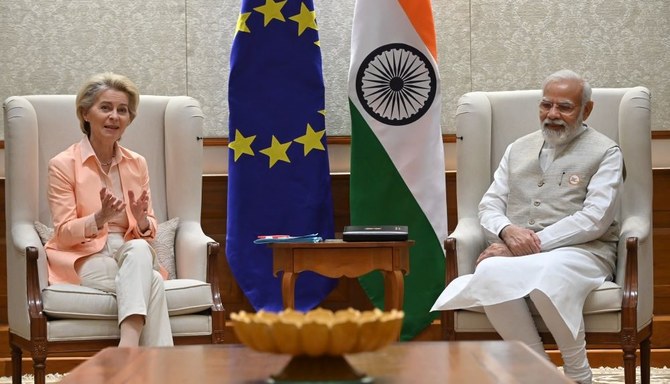
As though dealing with a pandemic was not enough, there are more troubles ahead for the EU. The bifurcation was around Poland and Hungary vetoing the budget on account of making disbursement of funds conditional to the rule of law. The second issue is the seemingly never-ending Brexit saga where deadlines represent moving targets rather than a line in the sand.
One has to be aware that this is the EU and that all agreements, whether internal or with external parties, such as with Brexit, always go down to the wire. The first issue, while it will be overcome in all likelihood, is not helpful amid restrictions and lockdowns as the pandemic rages on the continent.
In summer, the EU managed to agree its €1.1 trillion ($1.3 trillion) multiannual financial framework (MFF) budget. The commission was also given the green light to issue bonds to finance a €750 billion COVID-19 rescue package. A compromise on the latter has come home to roost: While most countries, particularly Italy and Spain, really needed the funds, the frugal countries comprising the Nordic states, Austria and the Netherlands, insisted that funds could only be disbursed if the rule of law was observed in recipient countries. This makes sense from an EU perspective because the union is not just a political and economic alliance, but is also deeply values-based.
Poland and Hungary have run foul of EU standards; the former’s judicial reform is seen to threaten the independence of the Polish judiciary. Hungary’s sweeping powers and long coronavirus outbreak induced a state of emergency. Other issues are the treatment of asylum seekers and the freedom of George Soros’ Central European University to operate in Poland.
This is not the first time that Visegrad governments have not seen eye to eye with Brussels. Political culture is shaped by history, which is different in former Warsaw pact states than in ultraliberal nations such as the Netherlands. Political unions, like marriages, have to be lived on a daily basis, which includes the necessity for compromises on a daily basis.
While this is not the time to hold up the disbursement of funds, one can be reasonably certain that there will be a compromise, possibly even before leaders meet again on Dec. 11. The veto of Poland’s Mateusz Morawiecki and Hungary’s Viktor Orban had a whiff of cutting off one’s nose to spite one’s face. Their countries were among the main beneficiaries of the last MFF and they stand to gain a lot from the rescue package in the immediate future and from the MFF over the coming seven years.
Brexit may be trickier to sort than finding a compromise on the rule of law and budget issues. Both are vitally important and livelihoods depend on a resolution.
Cornelia Meyer
Germany holds the presidency of the EU until the end of the year. It is a fortunate coincidence because the EU will once more be able to rely on the German chancellor’s superb negotiating skills to effect a compromise. Angela Merkel, who was raised in the former East Germany, has always been somewhat of a whisperer with leaders to the east of Berlin. There is after all a commonality of interests; the EU needs to get a budget passed and Poland and Hungary need access to EU funds. One should also not forget that while Viktor Orban is to the right of Merkel, in the European Parliament his Fidesz party sits in the European People’s Party grouping alongside Merkel’s CDU.
Brexit may prove trickier, as deadlines — mostly imposed by the UK — have come and gone. First negotiators needed to get there by the end of summer and then by other dates. The pandemic did not help negotiations, because meetings needed to take place virtually for the most part. EU chief negotiator Michel Barnier had a case of coronavirus earlier in the year and now needs to self-isolate, because someone in his team contracted the virus.
These are mere procedural problems. The issues remain the same — fisheries, a level playing field, and jurisdiction over an agreement. The two sides are said to have come closer on state aid, which still leaves adjusting environmental and social protection to EU norms on an ongoing basis on the level playing field bucket. However, clauses forcing the EU to adjust environmental and social protection in line with EU regulations going forward are still a bone of contention.
Nothing looms larger than how to treat Northern Ireland which was to be treated as part of the EU for customs purposes under the withdrawal agreement, resulting in a hard border between Ulster and Britain down the Irish Sea. The government’s Internal Markets Bill seeks to backtrack on those clauses of the withdrawal bill, which would violate international law.
Joe Biden’s win in the US presidential election ratcheted up the heat over Northern Ireland. He was unequivocal that a trade agreement with the US was out of the question if it threatened the parameters of the Good Friday Agreement and, with it, peace on the Irish isles.
Here too both the UK and the EU would be better off with an agreement. This holds especially true for the UK because the EU is the UK’s biggest trading partner by a long shot. According to government estimates, Britain could lose as much as 4.9 percent of future income with an agreement over the next 15 years and 7.7 percent without.
No matter how important a resolution, Brexit may be trickier to sort than finding a compromise on the rule of law and budget issues. Both are vitally important and livelihoods depend on a resolution. However, the former represents divorce proceedings and the latter a marital squabble.
Cornelia Meyer is a Ph.D.-level economist with 30 years of experience in investment banking and industry. She is chairperson and CEO of business consultancy Meyer Resources. Twitter: @MeyerResources
Disclaimer: Views expressed by writers in this section are their own and do not necessarily reflect Arab News" point-of-view










